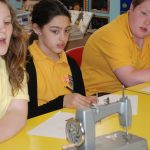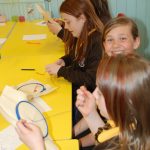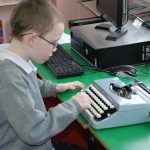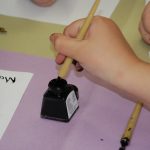Old Tools New Uses
In October 2011, we celebrated the completion of the ‘Old Tools, New Uses’ project at Summerlee Museum of Industrial Life, Coatbridge. The network received a £25,000 grant from the Museums Association’s Effective Collections scheme (sponsored by Esmee Fairbairn) in 2009 to undertake a collections review, produce a learning resource and consider rationalisation and sustainability issues surrounding the collections. The project has surpassed its original ambitions and is now making public its achievements.
This project aimed to identify the treasures and duplicates of tools and domestic technology in Scottish museums. Participants were able to learn the importance of items in their collections from our independent specialist advisor, have access to a schools resource and get the opportunity to dispose of duplicate items to artisan communities in Africa in partnership with the charity Tools for Self Reliance.
The project has achieved a number of other key objectives in terms of Scottish collections and education activity:
Our subject specialist, David Woodcock took part in 4 drop-in surgeries around Scotland as part of an identification and advice programme for acquisitions and more importantly, disposals, for all museums with relevant collections. We invited interested museums to submit their documented lists of relevant objects in the five categories (sewing machines, typewriters, cobblers tools, blacksmiths tools and woodworking tools) to be included in the master catalogue STICK would develop for Scotland. A total of 19 museums supplied lists and feature in the master catalogue.
As well as the catalogue, David has produced guidance documents to help curators identify and describe the hand tools, typewriters and sewing machines in their collections.
- Master Catalogue for Scotland
- Guidance for Identifying, Assessing and Recording Sewing Machines and Typewriters
- Guidelines for Woodworking Cobblers Blacksmiths Tools
The master catalogue is also available in smaller sections for each object type.
- Guidelines for Sewing Machines and Typewriters (55 pages)
- Master_Catalogue_Typewriters (41pp)
- Master_Catalogue_Blacksmiths_Tools (36pp)
- Master_Catalogue_Cobblers_Tools (61pp)
- Master_Catalogue_Woodworking_Tools (174pp)
The project also created learning resources for schools to encourage pupils to work with domestic tool collections, to understand their past and present use, to encourage enterprise, sustainability and innovation.
Model loan boxes were also made for Scottish Museums to use as templates to produce (at low cost) experiences that can be used by local schools/families around project collections.
Duplicate items were transferred to artisan communities in Africa in partnership with the charity Tools for Self Reliance – one of the most exciting parts of the project has been this partnership. This has allowed the project to match items (sewing machines and tools) to projects led by TFSR in Africa, specifically in Sierra Leone and Tanzania, specifically:
1. Blacksmith’s Leg Vice. Refurbished by volunteer at Netley Marsh – packed in kit no 0065.003 for Moyamba Training, Council of Churches of Sierra Leone. Despatched 9th June 2011. See www.tfsr.org – Group bulletin October 2011.
2. Ripsaw. Cleaned by Volunteer Ian at Netley Marsh Training Group (a supported workshop for adults with learning difficulties), sharpened by volunteer Malcolm at Netley Marsh main workshops, packed by students at Ringwood School during Fair Trade event, to be sent to Juhudi Carpentry Group in Kigoma, Tanzania. Kit no. 0077.001. Juhudi Carpenters is a group of 5 men, making beds, windows, chairs etc, and they will receive a kit of tools plus training.
3. Treadle sewing machine. Base refurbished by volunteer Simon, machine refurbished by volunteer Alan at Netley Marsh. To be included in kit 0077.022, next shipment to Tanzania. Will be sent to Mahembe Tailoring Group of Kigoma, a group of 12 men and women, 8 of whom are trainees. They make school uniforms and other clothes for men and women, and will be receiving sewing machines and haberdashery, plus training provided by SIDO (Small industries Development Organisation).
Another industrial sewing machine is about to be refurbished and allocated. In total, Tools for Self Reliance have received 38 objects from the collections. Some more will be matched to places in Africa where they will be useful, with the remainder being used to train volunteer staff. Another charity, Workaid, which also carries out refurbishment work on historic technology, has received 15 typewriters.
Papers
Flyer – Print out our flyer to display in your own museum.
Collections Scope -This document gives some background to the project and details about the types of objects and collections that the project is seeking to review in particular.
Drop-in Workshops Outline -This document explains how the drop-in workshops will work, what we will require you to do on the day and what you can expect to get out of them.
Project Update August 2010 – This document provides an update on the progress of the project, the success of the data collection for the master catalogue and the role of the Schools Education Project Manager.
Project Update June 2010 – This document reports on the success of the launch and explains how organisations can get involved.
Project Update May 2010 – This document provides an update on the progress of the project and introduces our specialist subject adviser David Woodcock.
Project Update October 2010 – This document reports on the September workshops.





